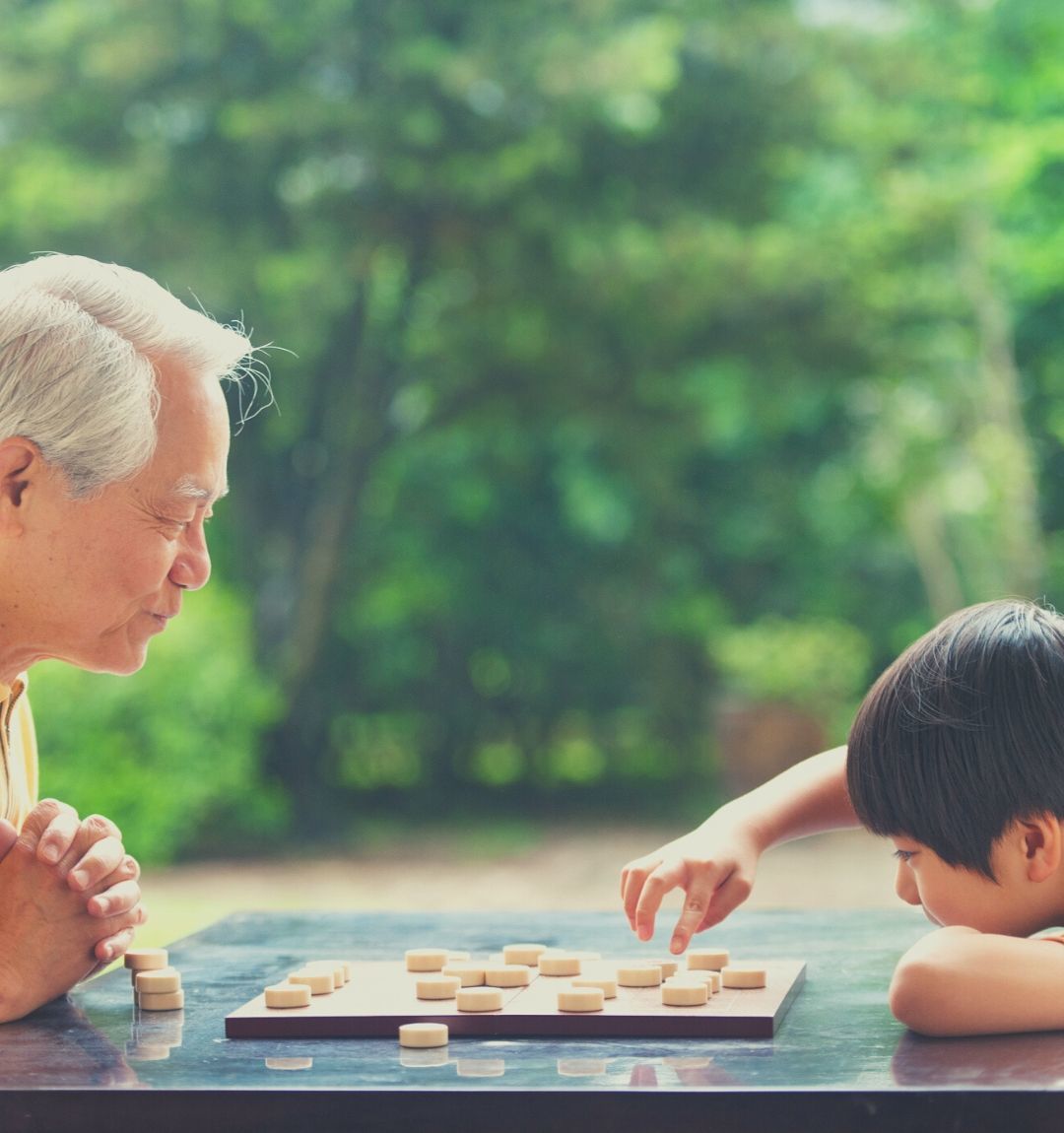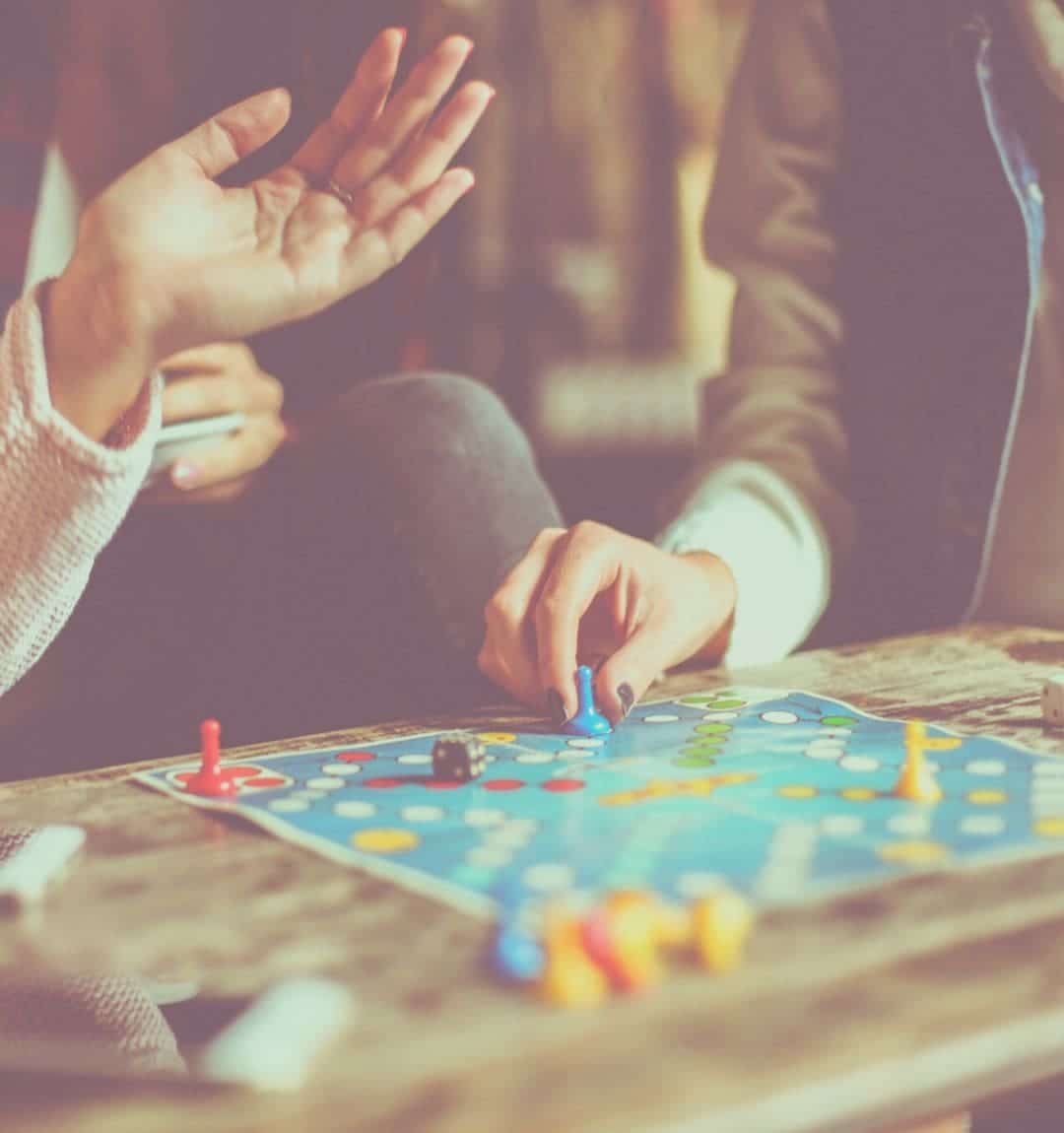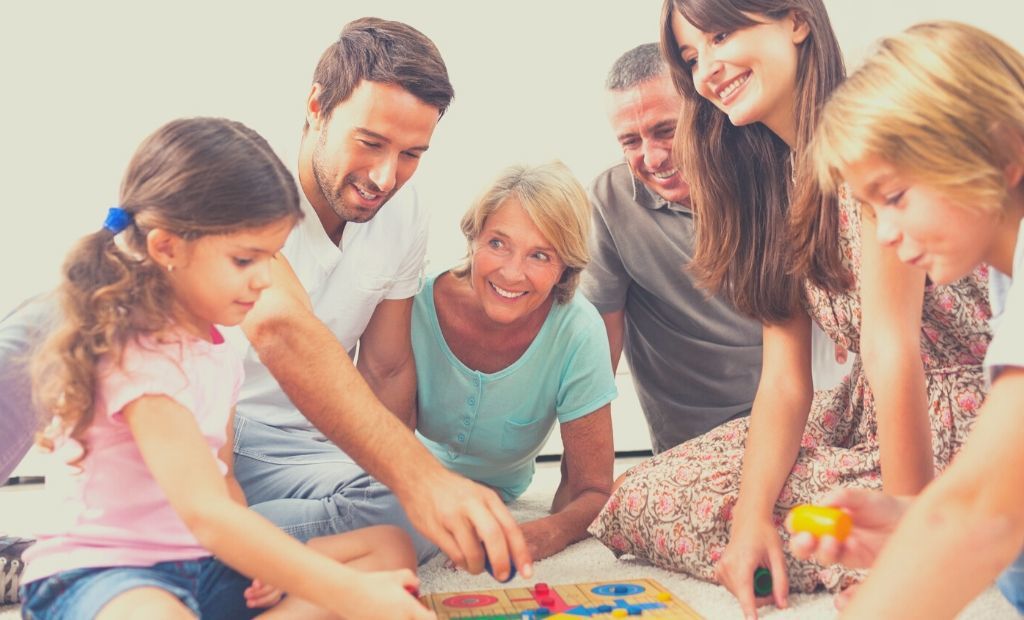Water Works. Colonel Mustard. Boardwalk. Mrs. Peacock. Checkmate.
If all of these things ring a familiar bell for you, you probably grew up playing board games. And I’m willing to bet that you have fond memories of playing these games with your friends and family after a long day on the beach or in the middle of a downpour.
People of my generation didn’t only play board games due to the absence of today’s common approaches to entertainment, such as social media and gaming apps. We played board games because doing so was a fun activity for anyone who was in the home at the time–despite their age or unique hobbies.
And, as it turns out, the introduction of modern technology hasn’t slowed down the sales of board games. In fact, it has done quite the opposite.
What may seem counterintuitive at first makes sense if you think about it. Consider these factors:
So, while people are undoubtedly spending a lot of time and money on newer gaming methods, the board game industry has continued to thrive amongst its competition (and–seeing as board games are estimated to be about 7,000 years old–I think they have some staying power).
One of the reasons behind this is the realized or unrealized positive psychological benefits that people get from playing board games with the important people in their lives.
In this article, we are going to look at 8 benefits of playing board games with the people you love and how engaging in this hobby can contribute to a happy and healthy lifestyle. Your board games shouldn’t be stashed away, waiting for an extended power outage to be dusted off and put to use. Let’s take a look at some of the reasons why.
8 Mental Benefits of Playing Board Games
1. Reduces Screen Time
While it’s true that some apps and television shows can be productive and educationally beneficial for children to watch, professionals with a wide range of backgrounds strongly encourage parents to limit your children’s screen time.
According to the American Academy of Pediatrics, children spend an average of 7 hours per day using electronic devices, which is 5 hours over the recommended amount. This can lead to:
Alternatively, when parents monitor and limit the amount of screen time that they allow their children to have, it has led to social, academic, mental health, and physical improvements. Setting limits on the amount of time that you allow your children to engage with electronic devices also opens up more opportunities for your family to spend time interacting with each other and speaking face-to-face.
Action Tip: If your after-dinner routine as a family is to break off into your own domains of the house focus on your tv show/app/social media of choice, decide on three days a week that you will play a board game as a family after cleaning up from dinner (if homework is done). This will still leave family members with time to themselves each night (and it will still leave entire nights free), but it will get you in the routine of replacing some of your family’s habitual screen time with an activity that will bring the family together through fun and laughter.
2. Creates Connections with Friends and Family
Board games bring families and friends of all ages together to connect, strategize, compete, and have fun. There is more of a social component to playing board games than you may have considered. The very foundation of this activity is cooperation, as it requires players to engage with each other through teamwork. Playing board games is the ideal way to spend time with nice company and strengthen bonds with other people.
Consider some of the principal components of connecting with other–knowing how to read body language and developing your Emotional Intelligence (EQ). Every time you have a positive interaction with someone else, it strengthens your bond with that person. Playing board games furnishes the type of fun and positive environment that’s needed to cultivate deep connections with other people and to promote strong family relationships.
Playing board games often leads to interesting conversations, which also strengthens relationships among people. And, as a side effect of playing games, the laughter you will experience will trigger healthy emotional changes in your body that will increase your overall happiness.
Action Tip: Board games are often used in “ice-breaker” situations where you’re meeting someone who is going to play some type of significant role in your life. For example, this is a common activity at quarterly employee meetings where there may be some new employees to the group every time. Next time you’re going to meet someone new or reconnect with someone you haven’t seen in a long time, bring along a board game to initiate that connection.
3. Produces Great Memories
It’s so easy for me to still feel the sunburn on my legs and taste the ice cream Twix bars as I envision my dad yelling, “Sorry!” at the breakfast table in our river house as I was growing up. We would play the same games as a family every summer over and over without ever getting tired of them.

Just as it can do for you, playing board games gave my family the chance to do something together.
All too often, when we are physically in the presence of other people, the focus is not on each other–it’s on each person’s individual smartphone, tablet, or the television. In 20 years, are you going to remember that social media post you just came across? Or that level of Candy Crush that you finally beat? Probably not. But, you will remember the laughter and the positive way you felt when someone made a strategic comeback or spun that lucky number.
Action Tip: Find the games that you and your family or friends love to play by doing some trial and error or getting some recommendations from the internet or from friends. Once you find the one, everyone will become addicted to it, making playing the game a new tradition.
4. Offers Valuable Teaching Tools for Children
Not all board games are created equally, but there are a lot of options out there that can provide great lessons for your kids. Consider just some of the transferable soft skills that playing board games requires and can therefore teach your children:
Furthermore, playing board games with your children allows them to practice cognitive skills that will be critical to their success in life down the road. According to Business Insider, specifically playing board games (over other types of games) helps strengthen the hippocampus and prefrontal cortex in children’s developing brains, which leads to improved cognitive functions such as problem-solving, logic, reason, memory, planning, attention, and IQ.
Playing different kinds of board games with your children can also help them develop concentration skills and lengthen their attention span by giving them opportunities to focus on small details. However, it is important to note that in order to help lengthen a child’s attention span, all of the players must commit to playing the entire game without interruptions. According to psychologist, Beatrice Tauber Prior, Psy.D, seeing the game through to the very end is the only way that children will reap this benefit from playing board games.
Action Tip: If you’re looking for a fun and beneficial way to spend a day with your kids, find some board games that are age-appropriate and create a distraction-free environment in which to play.
5. Reduces Stress
Having fun while playing board games helps get your mind off of negative things going on in your life that may be leading to stress. Focusing on escaping into the world of a board game rather than your job, money, or whatever other troubles you’re facing is an effective method for reducing stress and allowing yourself to have the break that you need.
Taking time off to reset your mind with a positive distraction is one way to relax that many people find to be effective. In fact, according to a survey of over 5,000 people by RealNetworks, Inc., 64% of participants reportedly play games with a primary intention to induce relaxation, and 53% play specifically to reduce stress.

Aside from the distraction that playing board games can provide, it can also help people learn how to better cope with stress. A 2017 study on stress management revealed that the fight-or-flight response–the body’s natural response to stress–can be safely exercised and regulated within the sophisticated framework of playing certain board games. This means that you’re giving your mind and body healthy opportunities to practice facing stressful situations so you can develop the coping skills that you need for when you feel stress in the real world.
Finally, every time you laugh while playing a game, the amount of cortisol in your body is reduced. This stress-response hormone builds up in your system when you feel pressure or anxiety, causing your blood pressure and heart rate to increase. However, as the amount of cortisol in your blood decreases, so does your risk for developing chronic health conditions.
Alternatively, playing board games encourages the release of endorphins, your body’s “feel-good” hormone, that can boost both your conscious and unconscious feelings, leaving you feeling joyful, kind hearted, and ultimately content.
Action Tip: If you’re experiencing a period of stress in your life, get some friends together to play board games. Doing so will help take your mind off of whatever is going on in your life and increase your happiness–even if only temporarily.
6. Increases Cognitive Function
Some board games require a high level of skill and focus. Whether you’re having to memorize something, keep track of a certain pattern, or do quick math in your head, you’re increasing your mental agility while playing, possibly without even realizing it.
One study that followed over 1,000 participants in their 70s for almost a decade used statistical models to analyze the relationship between how often a person played games and their cognitive function. The researchers found that those who played more games later in life had better cognitive function in areas including memory, thinking speed, problem solving, and general cognitive ability than those who didn’t engage in game playing. This research offers evidence that cognitive decline doesn't have to be inevitable. The relationship between playing board games and sharper thinking and memory abilities adds to current knowledge about what people can do to protect their cognitive health.
Action Tip: Just like people exercise their bodies to maintain physical health, it’s also important to exercise your mind to maintain your mental health. Be intentional about your game playing by playing a variety of board games on a regular basis to keep your brain working well.
7. Makes Socializing Easy
While some possess an innate talent for embracing every social situation, others find it difficult to socialize with people–even if they’ve known the person for several years. But, when you’re playing a board game, it provides a social world in itself.
Any high-quality board game can remove the bad stress from a social situation, while allowing the good stress of friendly competition to remain. Board games do this by offering social settings with people of your choice, and by implementing a structured set of rules and protocol for the social interaction that takes away the burden of improvisation that’s present in other such situations.
Playing board games offers people a way to interact with a group without having the pressure of coming up with things to talk about. For people who are shy or have mental health issues such as social anxiety, this can be a helpful way to work through these issues without the presence of additional social pressures. Interacting with other people as you’re playing a structured game can help you develop and refine your social skills without resistance.
Now, while you may not live a very social life–and you may think you’re completely fine with that—studies have shown that socializing with other people and experiencing more human connection is the most effective way to lead a happy and fulfilling life.

If you are trying to stop isolating yourself, look into games that require players to work toward a common goal or engage in cooperative play in some way. This team-like interaction will help build a sense of trust amongst your peers.
Action Tip: Know that you’re not alone if you don’t get super excited about socializing with people on a regular basis. Reach out to others who you suspect may be in this same boat and try to get a group together to regularly play board games.
8. Increases Confidence
If you are someone who could use a boost in confidence, board games could help you more than you realize. Not only will playing board games make socializing easier, it will also help you become more self-assured.
Each time you make a decision while playing a board game, you’re building your faith in your own abilities. Also, when you develop a winning strategy, you’ll start to perceive yourself as being capable, and an intelligent person who can make an effective plan.
You can practice your decision-making skills by playing board games that require you to use various types of play and strategies. As you get used to making quick decisions, you will also be gaining skills that you can use in the real world, such being confident in making a choice when you’re under pressure. The stronger your quick decision-making skills are, the less likely you are to become overwhelmed. Building self-assurance will help you build confidence.
Action Tip: Consider board games to be a method of keeping your skills and mental agility sharp. Next time you need a self-esteem boost, try playing some board games to get your confidence back.
Final Thoughts on the Benefits of Board Games
One of the best things about playing board games is that there are no restrictions or pressure behind this activity. Board games can be played at any time and really anywhere you happen to be. With endless possibilities of the variety of board games available, you always have a chance to play something that interests you and connect with like-minded people.
Now, if you want to specific board game suggestions, here are a few options based on your personal situation:
- 15 Best 3-Player Board Games
- 41 Board Games for Couples to Play on Date Night
- 27 Best Cooperative Board Games to Play Together
- 17 Best Solo Board Games to Play Alone
- 19 Board Games for Teens and Young Adults

Connie Stemmle is a professional editor, freelance writer and ghostwriter. She holds a BS in Marketing and a Master’s Degree in Social Work. When she is not writing, Connie is either spending time with her 4-year-old daughter, running, or making efforts in her community to promote social justice.


